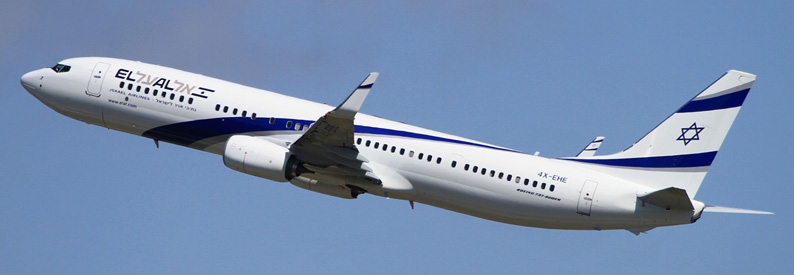El Al fires back at gov’t, demands $100mn compensation

El Al Israel Airlines (LY, Tel Aviv Ben Gurion) has responded to the letter Israel’s Ministry of Finance sent to it earlier this month promising a further USD50 million in aid with certain conditions, with the cash-strapped airline demanding instead USD100 million in “immediate compensation” for damages it said had been caused by the state’s tough travel restrictions.
The ministry’s letter had promised the support if El Al agreed to sell some of its aircraft and a stake in its Matmid Frequent Flyer Club, and if controlling shareholder Kenny Rosenberg injected another USD43 million into the company. The sum was far less than the USD300 million El Al had requested in early August due to the extended government restrictions on international travel.
In the latest missive, addressed to the ministers of finance and transport and attached to a Tel Aviv Stock Exchange filing on the evening of September 22, El Al CEO Avigal Soreq opted not to refer directly to the offer of a USD50 million loan, instead writing: “El Al demands immediate compensation of USD100 million for damages caused to it due to the decisions of the state, as has been done for other sectors of the economy.”
The decision to prevent the entry of vaccinated tourists had caused a USD108 million cash-flow deficit over the last three months, he said. Soreq also urged the government to begin to allow overseas tourists back into Israel and asked it to complete its assistance process by October 15.
Soreq pointed out that the 35% cut to its fleet which the government requested, from 45 to 29 aircraft, would mean that “El Al will be required to make a further and painful reduction in the number of employees.” He reminded that the company had only recently emerged from “intensive, sensitive, and complex” new financing arrangements for the aircraft.
The chief executive added examples of government assistance to airlines in other countries, carriers that the Israeli flag carrier will now have to face at a competitive disadvantage. He estimated that assistance so far provided to El Al was the equivalent of USD9.5 million per aircraft and claimed that many of its rivals overseas had received at least 50% more aid per aircraft on average.
Attached to Soreq’s letter was one from Rosenberg himself, expressing his commitment and pledging: “I take full responsibility within the framework of proper corporate governance to maintain [El Al’s] stability and nurture its growth during this time. […] My commitment to El Al is not a trivial one. El Al is an enterprise that requires deep and long-term investment.”
As for the Matmid loyalty club, Soreq said that a number of entities had expressed an interest in the club but that the strength of its activities would of course depend on the level of operations at El Al.
On September 23, the Hebrew-language business daily TheMarker reported that El Al was in talks to sell 30% to 40% of the club, described as one of its most lucrative assets with a company value of around USD240 million. The carrier is expected to split the club from the company and then sell a stake in it. Matmid is estimated to earn USD20 million a year. But due to El Al’s precarious situation the sale is expected to be made with the business valued at USD200 million.
